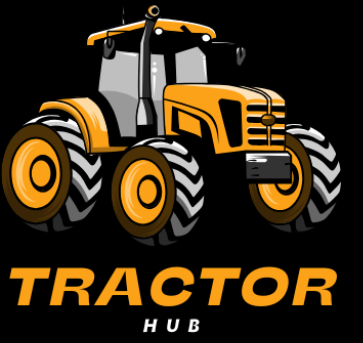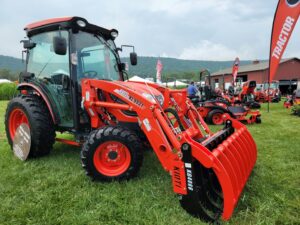When it comes to maintaining the performance and durability of your tractor, one of the most overlooked components is the tractor hub cap. While small in size, tractor hub caps play a crucial role in protecting your wheel hubs from dirt, moisture, and mechanical damage. Whether you’re a farmer, mechanic, or tractor enthusiast, understanding the importance of hub caps can help extend the life of your machine and save you from costly repairs.
In this article, we’ll explore everything you need to know about tractor hub caps — from their function and benefits to different types, materials, and maintenance tips.
What Are Tractor Hub Caps?
Tractor hub caps are protective covers that fit over the wheel hubs of a tractor. They are designed to shield the internal components of the wheel hub, such as bearings and lubrication systems, from external elements like dust, dirt, water, and debris.
Unlike decorative hub caps used in passenger vehicles, tractor hub caps are built for function rather than style. They are a critical component in maintaining optimal wheel performance, especially in challenging agricultural or off-road environments.
Why Are Tractor Hub Caps Important?
Tractor hub caps may seem minor, but their contribution to machinery performance is significant. Here’s why they matter:
1. Protection from Contaminants
Tractors operate in dusty fields, muddy terrain, and wet weather. Hub caps protect the wheel hub and bearings from getting contaminated by these harsh environmental elements.
2. Preservation of Lubrication
Many tractor wheel hubs need proper lubrication to prevent friction and wear. Hub caps help seal in grease or oil, ensuring smooth rotation and reducing mechanical wear.
3. Extension of Equipment Lifespan
By preventing damage to internal components, tractor hub caps help extend the life of the wheel assembly, minimizing downtime and saving on maintenance costs.
4. Cost Efficiency
Replacing a damaged hub cap is far cheaper than replacing a damaged bearing or entire wheel assembly. This makes them an affordable way to protect more expensive parts.
Types of Tractor Hub Caps
There are several types of tractor hub caps available, each designed for specific wheel systems and usage scenarios. The most common types include:
1. Dust Cap Hub Caps
These are the simplest type and are used to keep out dust and dirt. They are usually made of metal or hard plastic.
2. Grease Hub Caps
Grease caps not only cover the hub but also help to keep grease in the bearings. They often come with a rubber plug for easy access to refill grease.
3. Oil Bath Hub Caps
These are used in wheel hubs that need oil instead of grease. They are typically made of clear polycarbonate so the oil level can be checked without removal.
4. Bolt-On Hub Caps
These are secured with bolts or screws and provide a stronger seal. They are ideal for heavy-duty tractor applications and rough terrain.
Common Materials Used in Tractor Hub Caps
The material of the tractor hub cap influences its durability and performance. Here are the common options:
✔️ Steel
Steel hub caps are robust and long-lasting. They are ideal for heavy-duty tractors but are prone to rust if not properly treated.
✔️ Aluminum
Lighter than steel, aluminum hub caps offer good corrosion resistance and durability. They are often used in mid-range applications.
✔️ Plastic (ABS or Polycarbonate)
Plastic hub caps are lightweight and inexpensive. High-quality polycarbonate versions are durable and offer excellent protection in standard conditions.
✔️ Rubber or Composite
Some hub caps use rubber gaskets or are made entirely from composite materials to provide a tighter seal and flexibility.
How to Choose the Right Tractor Hub Cap
Choosing the right hub cap depends on your tractor’s make and model, usage environment, and specific requirements. Here’s what to consider:
✅ 1. Check Compatibility
Always check the manufacturer’s specifications to ensure the hub cap is compatible with your tractor model and wheel type.
✅ 2. Consider the Terrain
If you’re operating in muddy or wet areas, go for sealed or bolt-on hub caps to prevent water intrusion.
✅ 3. Evaluate Maintenance Needs
Choose grease or oil bath hub caps if your tractor requires regular lubrication of the wheel hubs.
✅ 4. Material Matters
Opt for rust-resistant materials like aluminum or polycarbonate if your tractor is frequently exposed to moisture.
✅ 5. Budget and Longevity
While cheaper plastic hub caps may seem cheap, investing in quality materials like aluminum or steel can save money in the long run by avoiding frequent replacements.
Signs You Need to Replace Your Tractor Hub Cap
Ignoring a damaged or missing hub cap can lead to severe consequences. Here are some signs it’s time to replace it:
- Visible cracks or warping
- Loose fit or falling off
- Grease or oil leakage
- Noisy or rough wheel rotation
- Rust or corrosion around the wheel hub
How to Install a Tractor Hub Cap
Installing a tractor hub cap is usually a simple process that can be done with basic tools:
- Clean the Hub Area: Remove dirt or debris before installation.
- Apply Grease (if applicable): Add grease if it’s a grease-retaining hub cap.
- Align the Cap: Position the cap over the hub.
- Tap or Bolt in Place: Gently tap it into place or secure with bolts.
- Check the Seal: Ensure it’s firmly attached and sealed.
Pro Tip: Always wear gloves and use proper tools to avoid damaging the cap during installation.
Maintenance Tips for Tractor Hub Caps
- Inspect regularly for cracks, corrosion, or loose fits.
- Clean the hub area during routine maintenance.
- Lubricate bearings if you use grease or oil caps.
- Replace immediately if a hub cap is missing or damaged to prevent contamination.
Where to Buy Tractor Hub Caps
You can buy tractor hub caps from various sources, including:
- Tractor dealerships
- Agricultural equipment suppliers
- Online platforms like Amazon, eBay, and specialized websites
- Local hardware or farm supply stores
Before purchasing, always check reviews, return policies, and product specifications.
Conclusion
Though often overlooked, tractor hub caps are an essential part of your tractor’s wheel system. They protect your investment, ensure smooth performance, and help avoid costly repairs. Whether you’re working in the fields, hauling loads, or navigating tough terrain, a quality hub cap makes a big difference.
When shopping for tractor hub caps, focus on durability, compatibility, and protection. Regular inspections and timely replacements will keep your wheels running smoothly and extend the life of your tractor.
Frequently Asked Questions (FAQs)
❓ What size tractor hub cap do I need?
You’ll need to check your tractor’s user manual or measure the hub diameter directly. Sizes vary depending on model and manufacturer.
❓ Can I drive without a hub cap?
While you can drive, it’s not advisable. Exposed hubs are prone to contamination and mechanical failure.
❓ How often should I replace tractor hub caps?
Check them during every maintenance cycle. Replace them if cracked, rusted, or no longer fitting securely.



